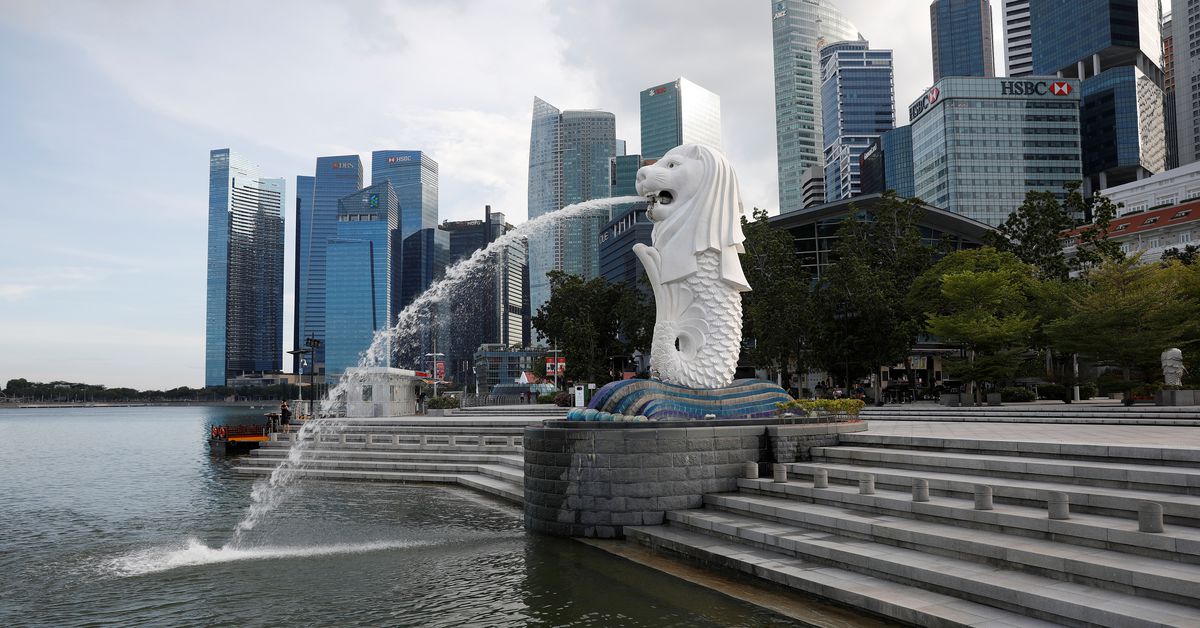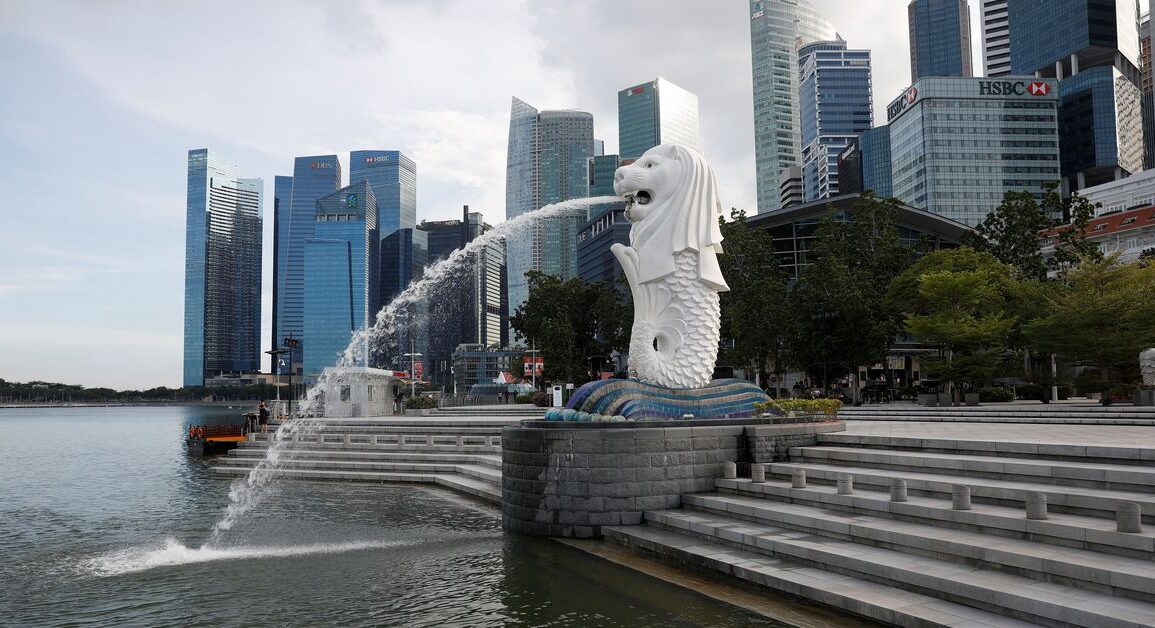
SINGAPORE, Sept 6 (Reuters Breakingviews) – Singapore’s wealth boom may be set for a pause. A ballooning $1.3 billion money laundering scandal and the ongoing economic troubles in China may be unrelated developments but they point to a slowing of inflows into the financial hub, the preferred safe haven for Asia’s rich.
Three weeks since authorities busted the illicit money operation, it remains the talk of the town. The amount involved has almost doubled and banks, realtors and jewellery dealers have been caught up in the ring. It is the most eye-catching saga since 2015 when Singapore’s banks were involved in the 1MDB Malaysian sovereign fund mess. It has captured the public attention too because the assets seized include over 100 properties and there is an apparent Chinese connection. Of the 10 foreign nationals arrested, police say three are Chinese nationals and seven were in possession of foreign passports believed to be issued by China and other countries.
As Singapore’s success as a financial centre grows, so too does its vulnerability to dirty money. Asset managers in the hub attracted $332 billion in net new inflows of funds in 2021, up 16% from the previous year and marking the third straight annual increase. The rich are arriving in force too, lured by political stability and official sops. The number of family offices awarded tax incentives, for example, nearly trebled to 1,100 by end-2022 from two years earlier. Some 200 single family office tax applicants were pending approval as of March. Nonetheless, the case raises doubts about the risk management improvements made by the $800 billion local wealth management industry after the 1MDB crisis: DBS (DBSM.SI), Deutsche Bank (DBKGn.DE) and OCBC (OCBC.SI) were creditors to firms linked to some of the accused in the Singapore case, according to Bloomberg.
Perhaps more significantly, the scandal hits on multiple political sensitivities. One issue is the rocketing cost of residential real estate where prices are rising by nearly double digits year on year. Property purchases by foreigners are starting to fall but only after authorities doubled stamp duty to 60%. A thornier problem is Singapore’s desire to avoid perceptions it is capitalising on the troubles of China, its top trade partner. As far back as 2019, Singapore was cautioning wealth managers against aggressively courting business from Hong Kong as the rival hub was gripped by political turmoil. In April, the Monetary Authority of Singapore strongly refuted a claim it had directed banks to avoid discussing the origins of increased wealth inflows, which the central bank insists remain well-diversified. Nonetheless, there is a palpable influx of ultra-rich Chinese families into the business friendly city where 39% of the population already speak Mandarin or Chinese dialects as a primary language.
The combined upshot of the money laundering case and China’s intensifying effort to stem the slide of its own currency against the U.S. dollar this year will force Singapore’s banks, realtors, and officials to turn more cautious in their dealings with wealthy clients. If it takes out some frothiness from the Southeast Asian economy, it might not be a bad thing.
(The author is a Reuters Breakingviews columnist. The opinions expressed are his own.)
Follow @anshumandaga on X
CONTEXT NEWS
Singaporean police have taken control of more than S$1.8 billion ($1.3 billion) of assets in a suspected money laundering operation, according to a court document filed on Sept. 4, almost double the amount outlined the previous month by city officials.
Ten foreigners charged for their suspected involvement were again remanded to custody on Aug. 30. On Aug. 16, the Monetary Authority of Singapore, the country’s central bank, said intelligence and suspicious transaction reports filed by financial firms in the city-state alerted authorities to the activities.
More than 400 police officers led simultaneous raids at multiple locations including bungalows and condominiums. Police seized assets including 105 properties, 50 vehicles, more than 35 related bank accounts, cash, luxury handbags and watches, pieces of jewellery, gold bars and documents with information on virtual assets.
Of the 10 individuals, police said three were Chinese nationals and seven were found in possession of foreign passports believed to be issued by China and other countries.
Editing by Una Galani, Katrina Hamlin and Pranav Kiran
Our Standards: The Thomson Reuters Trust Principles.
This post was originally published on this site be sure to check out more of their content.





